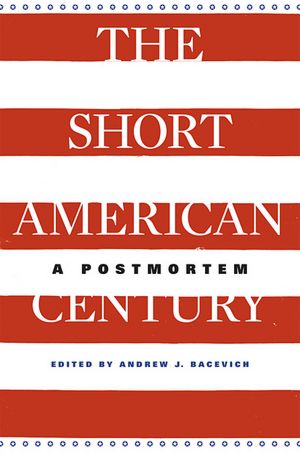Over at
Lawfare, Benjamin Wittes found
my op-ed in yesterday’s New York Times, on Obama’s double-take on the nature of our current war era, to be “perplexing.” Let me say a few words that are unlikely to lead Wittes and me to agree on everything, but at least might help crystalize what the disagreement is about. I should also say that I tend to agree with one of the underlying ideas at Lawfare, as I understand their project, and that
Mark Tushnet has also made: “liberals” and “conservatives” are often talking past each other on questions of national security, and there is a need to reshift the conversation, and get beyond partisan and left/right divides.
The most essential point is methodological (and if you’re looking for the direct points about my op-ed/Wittes’ post, skip ahead a couple of paragraphs). As legal scholars we tend to focus especially on law, of course. Law and society scholars, including legal historians like me, study law by going beyond it – by studying law in a broader historical and cultural context. Law exists as part of and in relation to society and culture, so that we can’t fully see law without understanding the way it is produced and understood – socially, politically, culturally.
Like other legal problems, law related to war and security is a law-and-society subject. Many very smart war powers and national security law specialists have been drilling down on the complex legal issues related to the post-9/11 context, an effort that Lawfare contributes to. But as with all legal issues, there is also a law-and-society component. Although war powers and national security scholarship often draws upon historical examples, the scholarship does not tend to incorporate current important work by historians and others related to war and security. So, in my view, the law-and-society aspect of legal war and security studies is underdeveloped. Alongside of the current focus on national security law in American law schools, we need, essentially, law-and-society law & security.
How does that relate to my op-ed? My piece is about Obama’s political rhetoric related to war, and I argue that he is trying to have it both ways. As a political matter, he has focused on the wars in Iraq and Afghanistan. His campaign promise was to bring these wars to an end. Early in his administration he would say “we’re in two wars.” But in 2010 he shifted, and gave a speech that said the nation is “at war with Al Qaeda.”
This shift in political rhetoric enables the president to argue that he is filling his campaign promise of ending the wars that he was talking about when he got elected, but at the same time the new formulation maintains (politically) the basis for his war-related powers.
Now for the law-and-society point: presidential war powers are determined not only by legal authorities and constraints, to the extent they exist, and by capacities inherent in the executive branch. As Scott Silliman put it in a national security law class at Duke last semester, the president “paints the scene.” Important work by historians helps to fill in the way presidents essentially narrate wars for the American public (my formulation, not Silliman’s), helping to generate both political sentiment and also, most simply, the conception that something happening faraway is a “war” that the security of Americans at home hinges upon. (This is not a post-9/11 problem, but was a critical Cold War issue, and also was important in earlier years.) Political scientist
Adam Berinsky helps us to see that what Americans “know” about overseas conflict does not derive directly from the conflict itself, but is filtered in the same way as public opinion on other matters: it is affected by elite discourse and partisan politics.
This is a long way of saying that presidential rhetoric on war and security is tremendously important and consequential. I focused only on Obama’s flip: “Ending major conflicts in two countries helps him deliver on campaign promises. But his expansive definition of war leaves in place the executive power to detain without charges, and to exercise war powers in any region where Al Qaeda has a presence.” But the ultimate problem goes beyond what looks like a political bait-and-switch. By narrating war differently, Obama is “painting the scene” differently, in a way that will not
determine the scope of his war-related powers down the road, including but not limited to detention. Though not determinative, a president’s framing of a war era is a first and essential component of the generation and maintenance of presidential war powers.
I take up Wittes directly, and the ways we’re talking past each other, below the fold.






